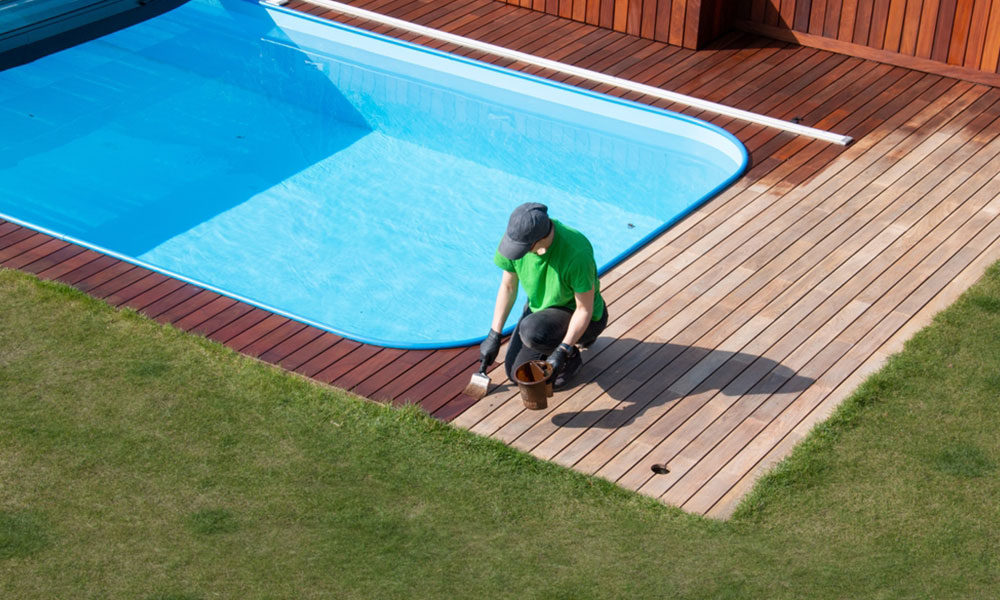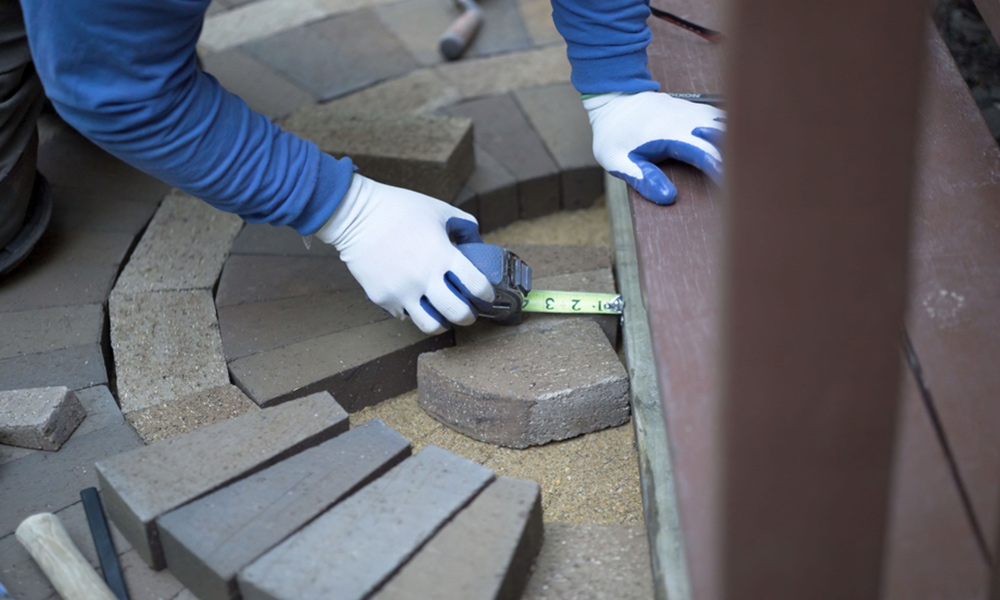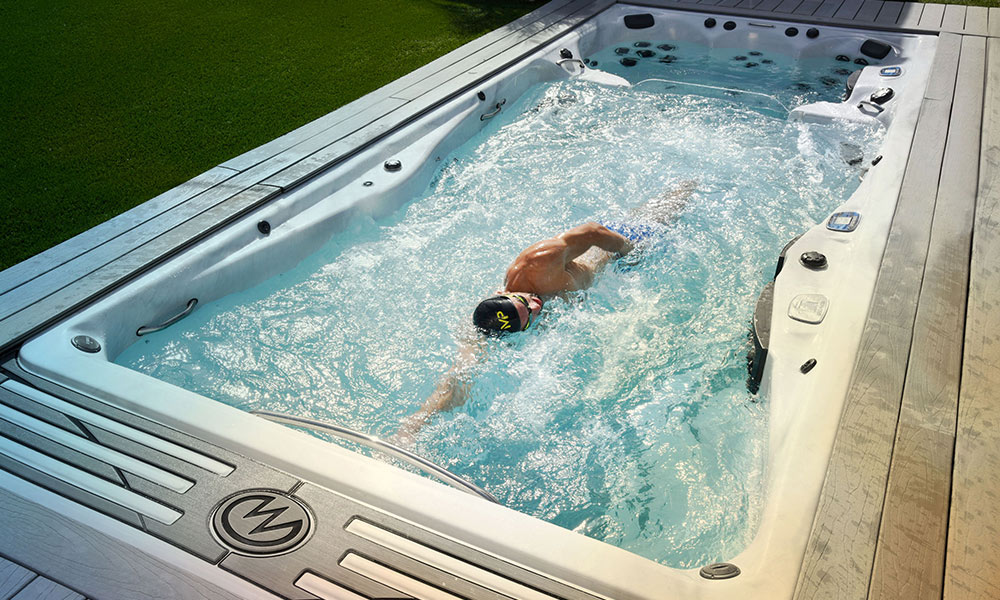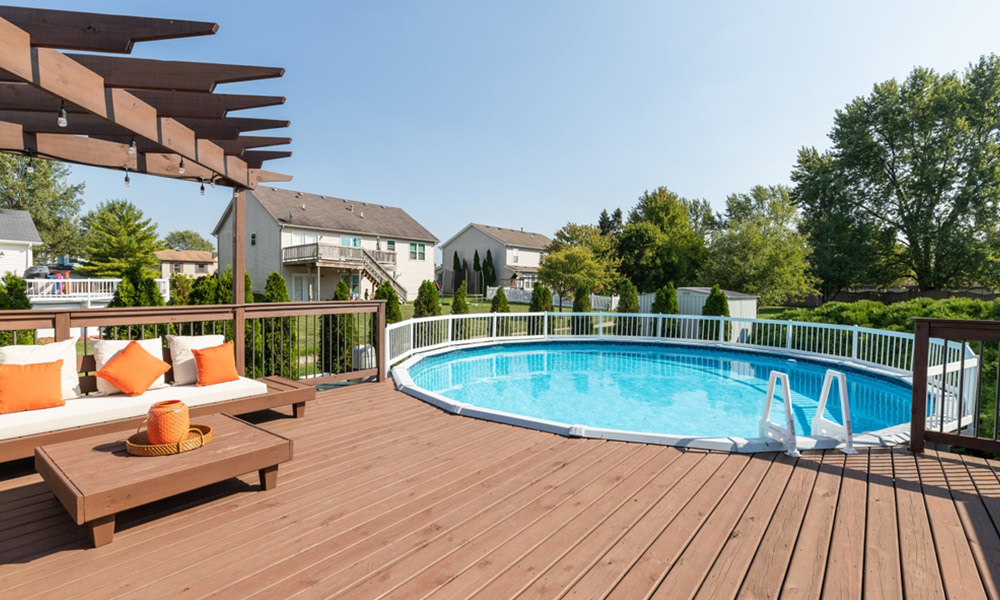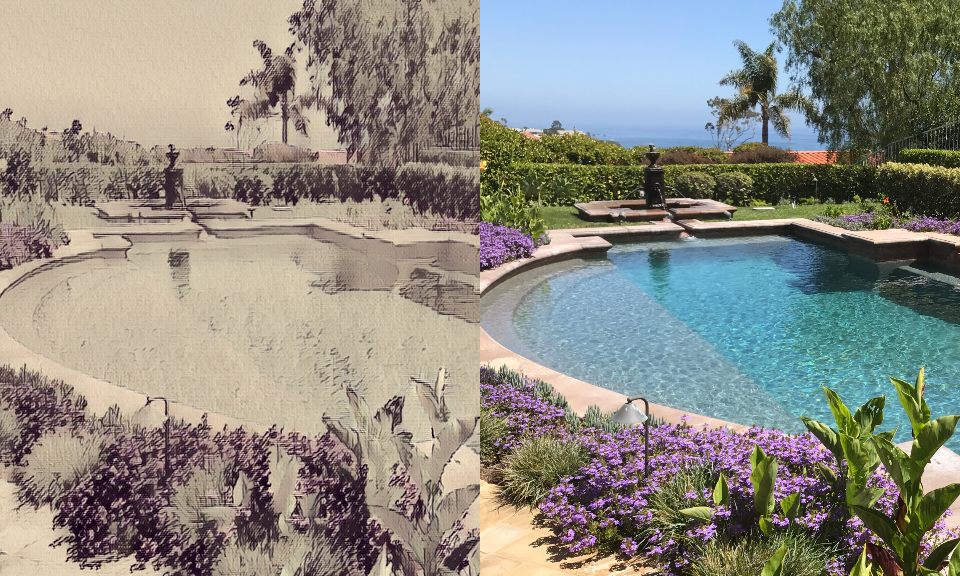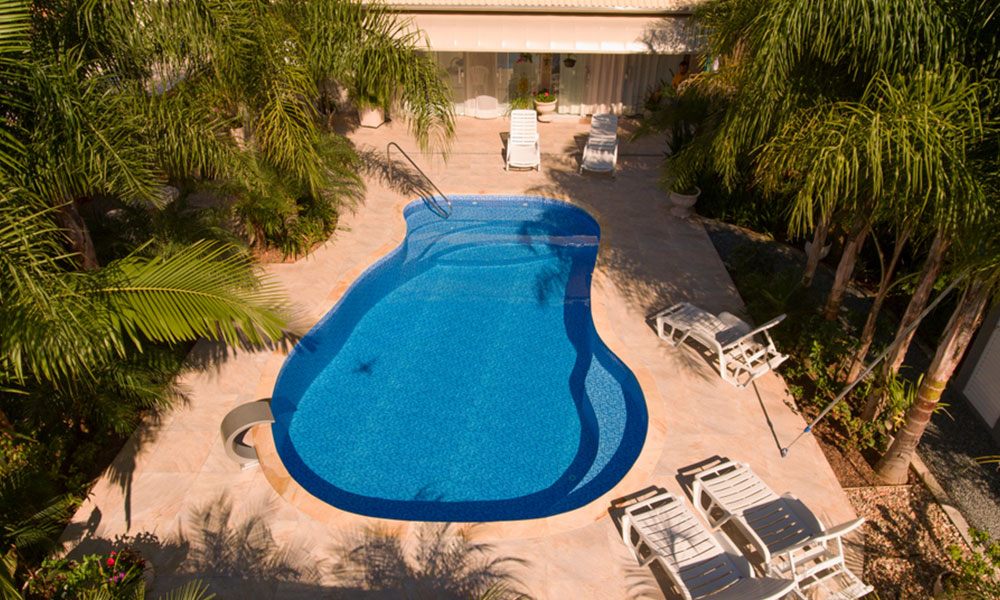Table of Contents
ToggleWhat To Consider When Choosing A Pool System
When planning to add a pool to your home people often focus more on the ‘fun aspects’ of it such as the pool design and features you want to have. But when you get deeper into the planning stage you will come across the ‘saltwater vs chlorine pool’ debate. You’ll need to choose whether you want a traditional chlorine system or a saltwater system for maintaining the cleanliness of their pool. Both options will keep your pool in great shape, but they do have some significant differences and it really comes down to what will best meet your personal needs. Finding a good Pool Builder can help you make an informed decision as well, but here are some tips to consider:
Chlorine

The chlorine pool has been around for many decades and is a tried and true method for pool maintenance. With this system, chlorine is manually added to the pool and only requires a pump which circulates the water, preventing buildup of dirt, algae, and bacteria.
Because the system is so simple and common, many issues which may arise can be fixed by the homeowner themselves.
Otherwise, finding a professional to fix something should not be an issue. In relation to the saltwater system, chlorine systems are much cheaper to install and maintain, and require less electricity. Chlorinated water also will not damage pool features (such as lighting, heating, and masonry).

Chlorine pools do require regular and frequent maintenance because the homeowner is responsible for chlorinating the pool when needed. Chlorine water is also known to be drying on the skin, harsh on the eyes, and can fade bathing suits and pool toys.
Saltwater
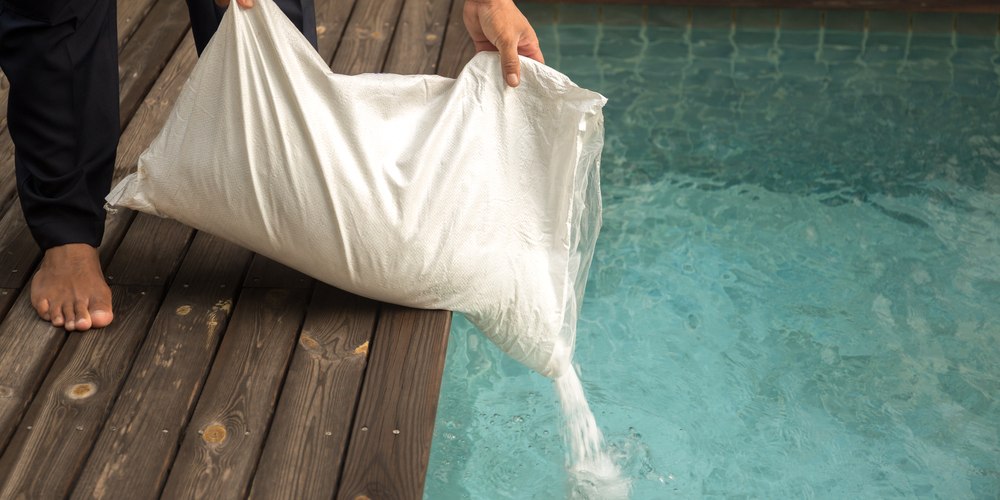
Two big myths of saltwater pools are that they contain no chlorine and that they are salty like the ocean. While they contain much less chlorine than the chlorine pools, they still use chlorine to disinfect the water. Saltwater systems work through a process called “electrolysis” which uses salt to produce the minimal amount of chlorine needed to keep your pool clean.
The level of salt is nowhere near ocean levels, in fact they contain about 10x less salt than the ocean.
Many people find that, because of the lack of chemicals and low salt levels, saltwater pools are much softer on the eyes, skin, and swimsuit fabric.
However, the saltwater system is much more expensive than a chlorine system because instead of the single pump used in chlorine pools, you need a special salt chlorine generator to convert the salt to chlorine. While they are initially a much bigger investment, down the road they require much less work from you. While they have not been around for as long as chlorine pools, many people are switching to these systems because of their low need for maintenance.
Besides the initial cost, there are some other things to be aware of.
- Saltwater is damaging to plants and soil so you would want to avoid decorating with plants around your pool.
- It corrodes typical pool features like lighting, heating systems, and masonry so you will also need to invest in saltwater pool-specific ones which can be more costly.
- While maintenance is usually minimal, it typically requires professional help because these systems are quite complex.
Saltwater vs Chlorine Pool Video Explanation

Changing Pool Systems
If you decide to go with a chlorine pool initially but later on want to make the switch, here is what you can expect.
You will need to:
- Select the right salt generator: It is recommended to use a generator meant for pools about 1/3 bigger than your own pool. This way it is not running at full capacity all the time. Always running at full capacity consumes large amounts of energy and will put a lot of unnecessary strain on the machine which will limit its lifespan. If the generator is too small, it will not be able to generate the amount of chlorine your pool needs.
- Purchase salt. Saltwater pools use non-iodized (plain table) salt. The amount needed will vary but you will simply need to follow your generator’s specifications.
- Eliminate phosphates. Phosphates are a food source for algae and can also act as glue for contaminates inside your generator. Phosphate test kits are inexpensive and easy to use- you can buy products which go directly in your pool to lower the phosphate levels (recommended levels are under 200 PPB).
- Maintain. Your generator should last 3-5 years when maintained properly. There is an abundance of products such as pool softeners which can help extend the life of your saltwater generator.
Making the Choice
If your goal is to save money and do not mind a little maintenance work during the pool season, the fixture-friendly chlorine pools might be your best option. If low maintenance is the name of the game for you, then splurging on a saltwater pool would be a great move.
Neither are without their cons but at the end of the day, they will both keep your pool safe and clear. There are many fators to consider and many will be unique to your situation, for example whether you will let dogs swim in the pool, their hair can cause a problem in pool pumps. We recommend that you consult with your Pool Builder before making a final decision as they may be able to provide you with additional information for consideration. Also note that if you are financing your swimming pool, the price difference between these two options may only be a few dollars per month.
If you are weighing up different pool options see our other comparison articles:



